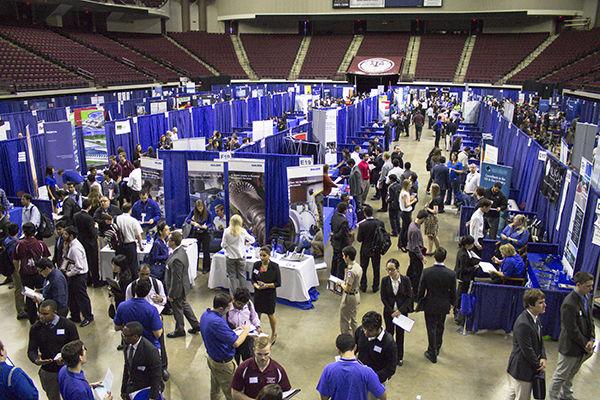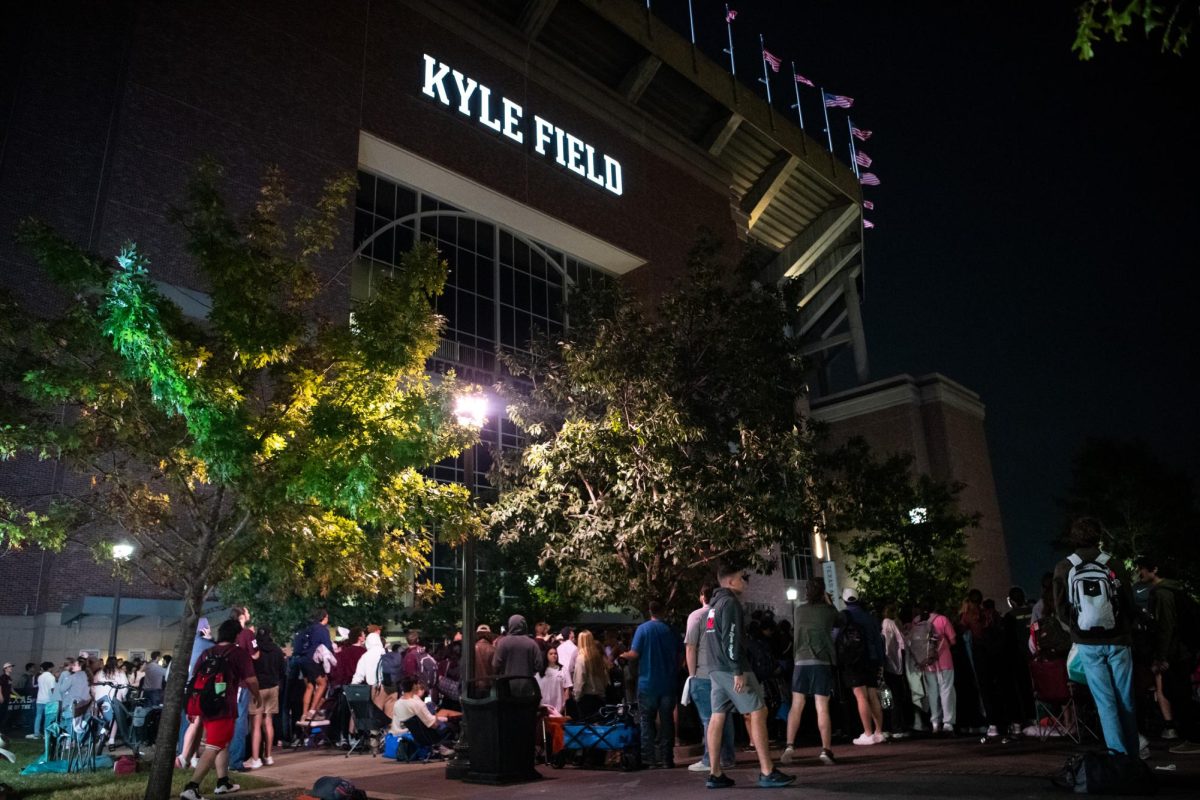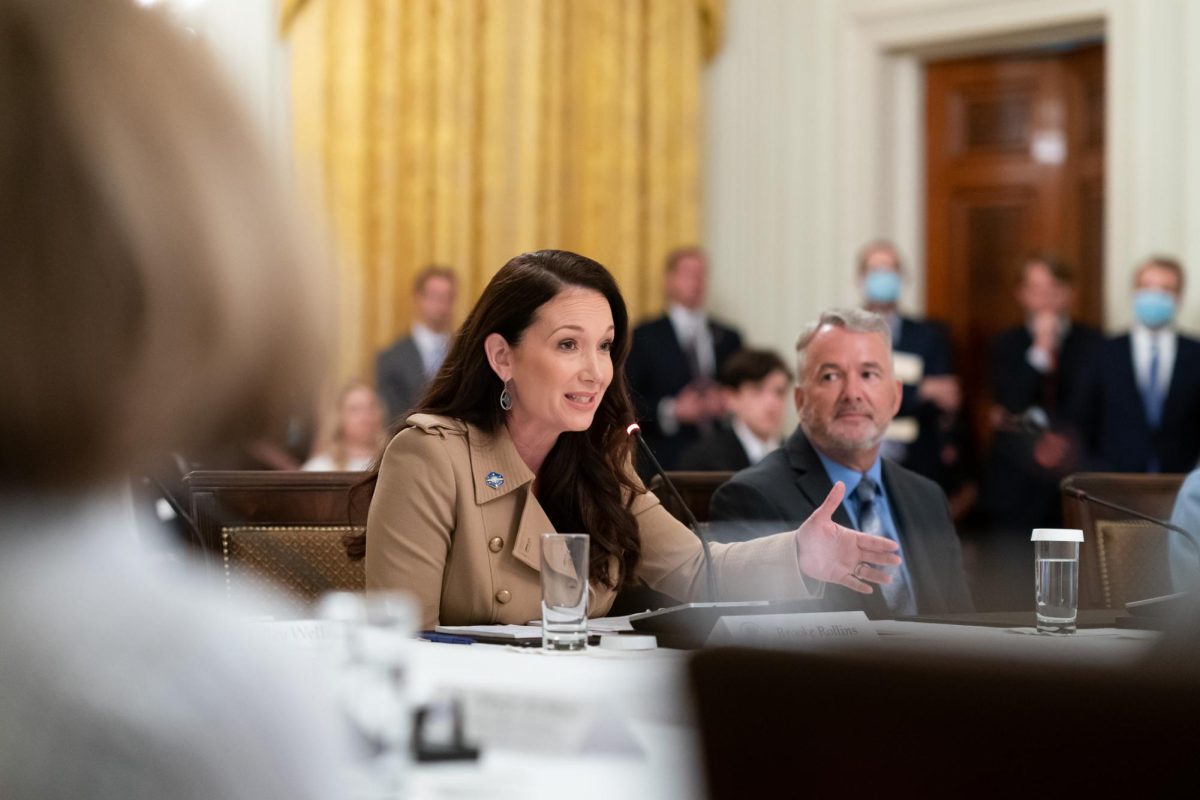Look prepared, be prepared
“You should come to the career fair dressed in business professional attire — typically, a suit — and have a confident, positive attitude,” said Lisa Burton, career coordinator at Mays Business School. “Pay careful attention to minimize jewelry, makeup and cologne. Never forget to have a simple, polished pair of shoes — preferably black.”
Burton also highly recommends bringing multiple copies of a resume that has been reviewed by Career Center staff.
Prepare necessary documents
Katie Stober, associate director for graduate student services, said one mistake students make is writing their resume as if it were a biography. Rather, it should function as an advertisement.
“You want to tailor the resume to show relevant experience. What’s relevant to one employer may not be to the other,” Stober said.
Stober said an effective elevator pitch should never be memorized and robotic — rather it should specifically include details related to the company.
“To put in perspective, an advertisement for McDonald’s that airs in the middle of the day looks entirely different from a McDonald’s ad that airs during prime time, which looks different from what they air during Saturday morning cartoons,” Stober said. “It’s the same company, but with different viewers. That’s how you want to see yourself.”
Do your homework
No matter the major, Stober said it is always a good idea to research companies beforehand. Stober said to study the companies present at the career fair, narrow down choices to a list of top 10 and take a few minutes to look at the companies’ websites.
Scott Sladecek, supply chain management senior and vice president of Business Student Council’s career fair committee, said students should find out general details about the company they are interested in.
“What do they do? How many employees work there? Where are they located? If the company is public, what is their stock price trading at?” Sladecek said.
Burton said companies are interested in people who are interested in them.
Interactions
Overall, Sladecek encouraged students to do research, memorize random facts and, if necessary, keep a printout of it all in a portfolio.
If interactions go worse than intended, Burton said take a moment to regroup and reconsider the presentation style before moving on.
“Unprepared students stand out for the wrong reasons and will immediately be taken out of consideration,” Burton said. “If you have a bad interaction while at the fair, take a break, rehearse your thoughts, and then go to the next company.”
Post-career fair
After the career fair, the interactions are not over.
Stober suggests sending thank-you emails over handwritten letters, because interactions during career fairs are typically short and companies are likely to be traveling extensively as they search for new recruits.
“Unless you make it to on-site interviewing do you have to prepare a handwritten letter,” Stober said. “This is when recruiters are flying you out to their company for an interview and taking you out to dinner. Your thank-you letter is dependent on the level of interaction.”
When it comes to actually applying for the job, Stober said it is important to be persistent, but not annoying.
“A lot of students send the first email and then let the ball drop,” Stober said. “If you apply online, 2-3 weeks go by and you don’t hear anything, you need to contact them again. This reiterates your interest with recruiters and anyone you met at career fair.”
Above anything else, Sladecek said the number one secret to getting hired is to relax and be yourself.
“I’m a pretty social person, I can pick up on social cues,” Sladecek said. “I just let conversation keep going or stop. I don’t try to push it, or keep it artificially afloat.”
Go get hired: Career fair tips
January 28, 2015

Sarah Lane — THE BATTALION
The first career fair of the semester, the Student Engineers’ Council Career Fair, had the largest number of recruiters to date with 504 booths Tuesday and Wednesday.
0
Donate to The Battalion
Your donation will support the student journalists of Texas A&M University - College Station. Your contribution will allow us to purchase equipment and cover our annual website hosting costs.
More to Discover








